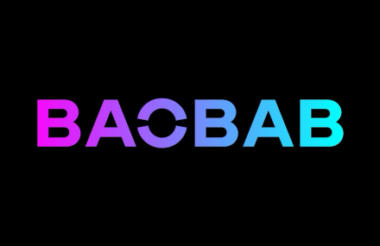If you’re interested in becoming a member or supporter of Baobab Foundation, please head here.

A new organisation-led foundation for black and minority ethnic communities
We spoke with Joe Ferns, Dilhani Wijeyesekera and Jake Ferguson to learn more about their new initiative, Baobab Foundation, and how it could change the philanthropic landscape in the UK.
A new foundation is being established to put black and minority ethnic organisations at the heart of the funding distribution process. The aim of the foundation is to act as a specialist funder, addressing the exclusion of black and minority ethnic communities in the UK.
The initiative is called the Baobab Foundation. Its establishment came in response both to the murder of George Floyd, and to the disproportionate impact of Covid-19 on black and minority ethnic communities in the UK.
What is the proposition?
Baobab Foundation has been established by a collaborative network of organisations. This is a divergence from traditional foundations, which are set up by funders themselves.
The idea is that this type of structure will give those who deeply understand the social issues a presiding voice about how funding is distributed. It has also been conceptualised as a way to leverage more scalable funding for small organisations, allowing them to move on from the challenges of short-term, project funding.
The foundation is looking to secure a £1b endowment to allow for the distribution of annual grants of £50m among black and minority ethnic-led organisations.
In-turn, the foundation will work alongside an alliance of private sector organisations, philanthropists, foundations and charities, all of which will provide expert input and advice. However, decisions on distribution will ultimately be left to member organisations.
“We can only ‘level-up’ civil society if we work together and if power is shared. That’s what’s driving us here, the notion of equal ownership.”
The foundation’s core philosophy is to tackle systemic racial bias within the distribution of philanthropic funding in the UK, and to bring a racial lens to the challenges of poverty and social justice. Baobab will seek to redress long-standing funding disparities by increasing the involvement of black and minority ethnic-led organisations at all stages.
Also central to the foundation’s structure is knowledge and leadership distribution. The collective has committed to being built through the expertise of community voices, and to sharing best practice among funders and policy makers.
“Another idea we are working towards is how to enable black and minority ethnic professionals in corporate partner organisations to lend their talent to community organisations.”
It has plans to develop a large-scale network of black and minority ethnic organisations across the country, supporting networks to organise regionally and by sector, ensuring power is devolved to those closest to the issues faced.
The foundation’s establishment will give essential relief to communities across the UK, as well as providing an independent and equitable black and minority ethnic voice at the table of the country’s big funders.
What stage are they at?
So far, over 70 organisations have become part of the Baobab network. An expert steering group has been established to provide oversight and guidance, while any decisions pertaining to the foundation’s future strategy must be signed-off by its wider membership.
£320,000 has already been secured for a six-month research and development programme. This programme will define the foundation’s priorities, establish a legal entity, and assess the foundation’s funding mechanisms. As part of this phase, Baobab is seeking donations from foundations and philanthropists to establish a funding pot to be made available on launch in late 2021.
Beyond this, Baobab Foundation will be shortly launching its strategy development process, with a range of participatory activities and events to help shape its future.
How does this alter the philanthropic landscape?
When not deeply embedded in a particular cause, charitable foundations normally decide where their funding goes by sifting through an array of grant applications. These applications dedicate a lot of space to educating foundation executives on an issue, before persuading them of the viability of a proposed solution.
The net result is that executives who have often just been introduced to several issues are the ones responsible for deciding which of them is the most deserving of funding. This is not ideal as it embeds a spirit of competition – rather than collaboration – between organisations, with the final say on funding distribution left to a body which doesn’t fully understand the issue.
“Part of the role of Baobab is to bring a higher degree of cultural competence into the funding space. There are voices which still need to be heard.”
Baobab’s approach shows that a different method is possible. By bringing together organisations working on different aspects of the same social problems, it demands synchronisation. This enables organisations to understand the position they occupy within the broader landscape, meaning they are less likely to compete for the same sources of funding. The new funding model also means that smaller organisations – without the resources to compile glossy grant proposals – are less likely to be ignored when funding is distributed.
“We’re trying to create a fundamentally different type of relationship. It’s not just about money coming to the table, it’s about skills and experience as well. We want to enable small organisations to connect with spaces they’ve never been able to connect with before.”
There is no debate that 2020 has been a catastrophic year for the charity sector and for those who rely on its essential work. But necessity is the mother of invention. Through these challenges, the pandemic has urged a rethink of existing funding structures. Initiatives such as Baobab Foundation have stepped up to offer new directions of travel, providing a window into how the future of charity funding might look: community-led, collaborative, cogent.
Follow @UKBaobab on Twitter for updates.
